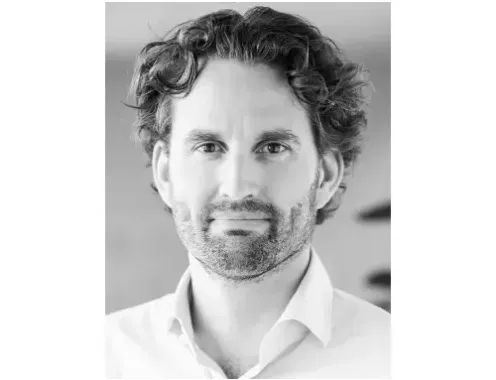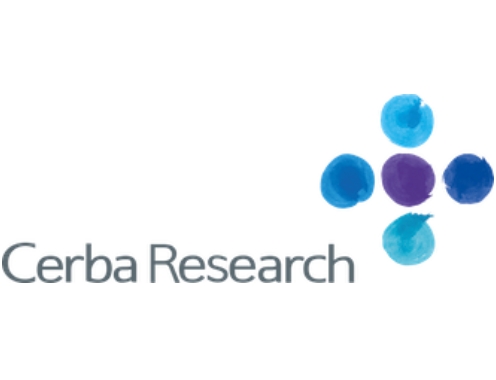David Peters - Chief Financial Officer at Cerba Research


David Peters is the Chief Financial Officer at Cerba Research in Rotterdam. He started his Finance career in Audit at EY, before being CFO at several businesses in the Netherlands, including Greetz, Land Life, and Coyote Logistics.
What risks have you taken throughout your career and how did they help you get to the level you are at?
Generally, Finance and risk do not go hand-in-hand, but I have taken some risks in my career. I started in auditing at EY, but I quickly concluded that auditing wasn’t for me. So, when the opportunity arose, I decided to join a start-up.
I remember people around me were surprised I was leaving a well-established company with a planned-out career path to instead join a company that can go up, but also potentially go down. It was a leap of faith.
In general, and in a strong sense, I like to stay in the driver’s seat and be in control of the steps I take where possible. It also may be a bit counterintuitive to be in Finance and be very rational, but I do listen to my gut feeling when something feels right and, in that case, it did. That has happened on a couple of occasions.
Moving from EY to a scale-up is the ultimate learning curve; if you’re in a large multi-national company, it’s established, and the structure is in place. You’re almost moving onto the opposite challenge.
There were a couple of things. Firstly, the fixed career path at EY didn’t appeal to me at the time and I wanted more speed and a faster dynamic. I found that in the company I joined.
We were closing venture capital rounds within the year after I joined, expanded internationally, and built the team. I also was given a lot of opportunities and a steep learning curve I don’t think I would have received anywhere else.
The basic Finance premise is high risk, high return - and that definitely happened there.
How did you plan the development of your career and what was your thought process?
If I’m being completely transparent, I didn’t have a career path laid out, but it was clear that it was going to be in Finance, starting in secondary school.
However, I have made some specific choices, like leaving auditing. But also, the decision I made a couple of years ago to continue my career at larger, international, and more corporate environments, like Coyote Logistics and now Cerba Research.
I have also been involved with companies with a focus on sustainability, which sparked my interest in the field. I try to apply this in the companies I work at, but I have also continued to advise start-ups and scale-ups in the field of sustainability on how they can establish themselves and create a viable business.
Ultimately, the type of companies I click with are fast growing, highly dynamic, and a lot needs to happen in a short period of time. That appeals to me.
How do you feel digitalisation and transformation has changed your role/the role of Finance?
On a meta level, it has changed and is changing the Finance profession from a transactional role to a much more value-adding role in the business, which can be on different levels.
I think the Finance profession is evolving from recurring routine work to much more specialised. It can be as simple as adding robotics to ERP (enterprise resource planning) systems and removing some of the routine work to free up the team for other things.
On the other hand, it can be more sophisticated in terms of predictive analytics, taking financial and non-financial indicators to come up with an accurate forecast for the business.
My CEO says forecasting is both a science and an art. You need to be creative to identify which information is in fact relevant. I think Finance professionals starting out now need to be very tech-savvy. In my role, I need to continually learn and develop to be at the forefront of what is possible.
Do you attend events to keep your learning up to date? EMEA Recruitment runs a number of events to engage with our network and share ideas.
I do try to attend events to broaden my horizon and to get outside in views on other industries. Finance can be a bit of a solitary position, so it’s good to have sparring partners and be surrounded by like-minded individuals doing similar things, in a similar company, or at a similar growth stage.
Also, things like roundtables, knowledge sharing events, webinars. During COVID, they became very prevalent and accessible, because you didn’t need to travel. It’s important for Finance to focus outward, gain knowledge, and then bring that into a company.
In your opinion, what do you believe are the drivers of changes experienced in the employment market in the Netherlands?
So much has changed. One of my personal observations is that the generation before me used to work for a company for ten-plus years – and, in some cases, their whole life. But, nowadays, it’s much more common and acceptable to have shorter stints at a company.
Before, that was a bit more frowned upon. Today, you still need a solid story, but it’s generally more accepted.
However, on the flip side, if a person has been at one company for so long, it’s hard to know how well that person will deal with change, their adaptability to new environments, and their agility. It’s now a case of how committed that person is versus someone who doesn’t switch – how agile are they?
I also remember recruiting ten to 12 years ago. There was a clear distinction between a contractor and people you would hire as an employee. Nowadays, it’s much more acceptable to say, “I did freelance work and want to be employed again,” or the other way around.
Also, the gap between being a contractor and being an employee has closed a bit. Companies, especially in the tech sector, are much more mindful of making sure the benefits of being an employee outweigh the benefits of being self-employed.
The last topic I have seen – further developed by COVID – is the blurred line between work-life balance. I say to the people in my team, “I am flexible as an employer, and I expect a certain level of flexibility from my employees.” I have confidence in my team and flexibility is important.
The downside is you can work 24/7, because you’re always on. On a personal level, I try to be mindful of that. When I am with my family and children, I am present. When I am at work, I am fully engaged in my work.
There was a company I worked for during the pandemic that was very traditional about being in the office five days a week. They completely changed overnight, and I was blown away by the flexibility to change so quickly. That, to me, is a big benefit and has shown it is actually possible.
What was the best/worst interview experience you have had?
The best interview experience I had was at Sonos. I was interviewed there for a Finance job, and the entire process was completely streamlined and perfectly executed. They gave me a full demo of their products, and everyone was very engaged and prepared. In a way, they really expressed their company culture and their way of working during the interview.
It was good to take someone who would be working in Finance and not necessarily with the product, and really make the interviewee part of the DNA of the company and what they are driven by.
A not-so-good example is when the interviewer isn’t on time, not prepared, or doesn’t really engage the interviewee; as a candidate, I don’t feel appreciated.
Another good example - and I really took this away with me - was at Coyote Logistics. They took the process very seriously. They gave me a business case as a last round to prepare and discuss with my direct manager and the people I would work closely with. It takes time to prepare from my end, and it takes time from them to sit through the case and ask questions. Overall, it was a positive experience.
I have done that with candidates myself and it can completely change the perspective you have on a candidate – someone can be a good talker, but then doing, conveying, and presenting your message is a separate skill.
What are the challenges that await your business?
Cerba Research is experiencing immense growth, both organically and non-organically. We have a growing number of companies worldwide, some wholly owned, some as joint ventures, forming a significant and complex group.
There is still some work to do here - driving efficiency and harmony across multiple entities and continents, transforming a science-based, and very conservative business, making sure it’s ready for a digital way of working. All this while growing rapidly.
The key challenge is to combine running the businesses on one hand, transforming it on the same hand, and - parallel to that - not losing track of the fundamentals.
Other challenges surround keeping the team engaged and informing them of changes, gaining feedback from them, and making them feel heard and part of the transformation process – that’s generally what we are going through.
Being business-specific, the clinical trial landscape is evolving more rapidly than ever and COVID was a big driver. Everything that is going on in the world creates pressure on the global pharmaceutical supply chain; there is globalisation, decentralisation, personalisation, and it’s extremely data driven. Taking that data and making trials much more efficient is really playing a role, making it incredibly interesting.
Clinical trials, as we know them today, have been running for over 60 years, but now we are in the middle of a digital revolution.
What is your favourite business motto and why?
It’s not a business motto, per se, and I have used it on other occasions, but it is: “He who wants to fly one day must first learn how to stand, and walk, and run, climb and dance, as you cannot fly into flying.”
My interpretation of that it is key to ensure you have a solid foundation in place before you start building, and - as I am experiencing now - it is a continuous cycle. That’s what I find interesting in a fast-growing business. When you lay a foundation, you build on it, then you need to reassess it, because you’re becoming too big.
For example, in very practical system selection, a simple bookkeeping system may get you up to 100 employees, but - at a certain stage - you need to migrate to something bigger and repeat the process as you grow. That continuous cycle is very energising to me.
Thank you to David for speaking to Hannah Mallia, Head of Finance Leadership recruitment in Netherlands team.
Views and opinions contained within our Executive Interviews are those of the interviewee and not views shared by EMEA Recruitment.






You can also use your social account to sign in. First you need to:
Accept Terms & Conditions And Privacy Policy